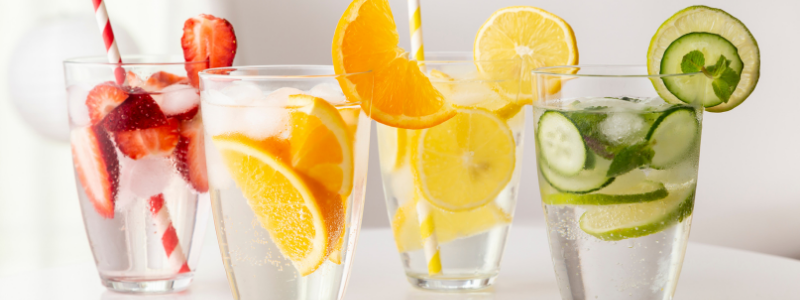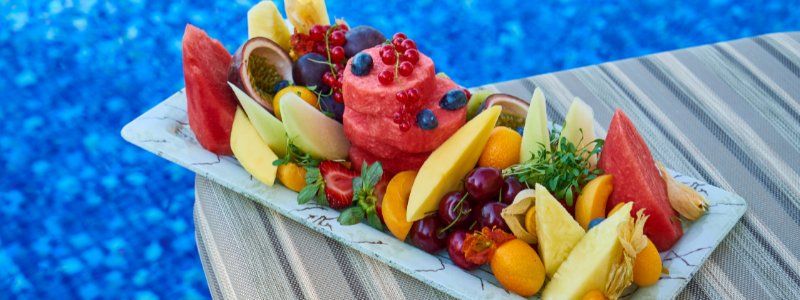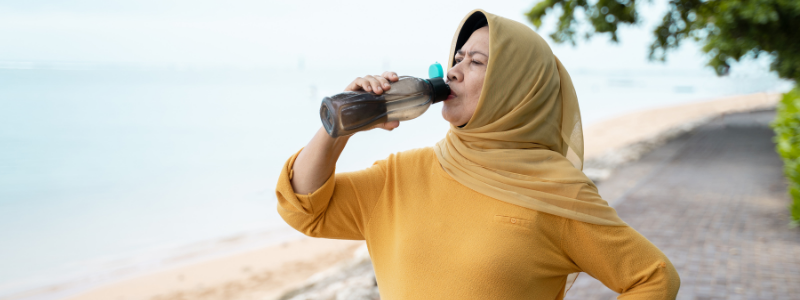Did you know that adults lose up to nearly 2.5 litres of water each day, just through daily activities?
Being well hydrated is essential for almost every part of life – from optimal brain functioning, to heart rate and blood pressure, to mood regulation, immune health and much more.
The risk of dehydration increases as we age – as the body naturally retains less water, and medications or certain medical conditions can make the body more susceptible to dehydration.
Older people may also find they don’t feel thirsty until they are already experiencing signs of dehydration – such as fatigue, muscle cramps, muscle weakness, headaches, nausea, increased heart rate or confusion.
That’s why its important to drink fluids regularly throughout the day even if you aren’t feeling thirsty. And if you’re exercising, drink water before, during and after your session to rehydrate the fluid lost through sweating.
Our top tips for hydrating?

- Make water fun!
If you find drinking plain water difficult, try adding fruit or herbs to your water to give it a delicious flavour. Try orange + mint, strawberry + basil + lemon, or pineapple + lime.

- Choose foods with high water content
Water isn’t our only source of hydration – don’t forget to enjoy a wide variety of fruits and vegetables, especially ones which provide some water. Opt for fruits like watermelon, rockmelon, pineapple and peaches, and vegetables such as lettuce, celery, zucchini, cucumber and tomatoes.

- Make it your routine
If you find yourself easily forgetting to drink throughout the day, set reminders on your phone and bring a drink bottle with you everywhere you go. Drinking a small glass of water before breakfast can also give you a good start to the day.
Combining these tricks and tips with small actions such as reducing time in the sun in the middle of the day, wearing protective clothing, hat and sunscreen, and ensuring your home and work environment is cool and well-ventilated can help support optimal hydration.
Where to get help
If you feel struggle with dehydration – don’t delay, visit your local GP for assistance.
This article is for informational purposes only. This article does not replace medical advice. Consult your local medical authority for advice.
For media and spokesperson enquiries, or questions and suggestions for healthy living content, please email media@share.org.au
